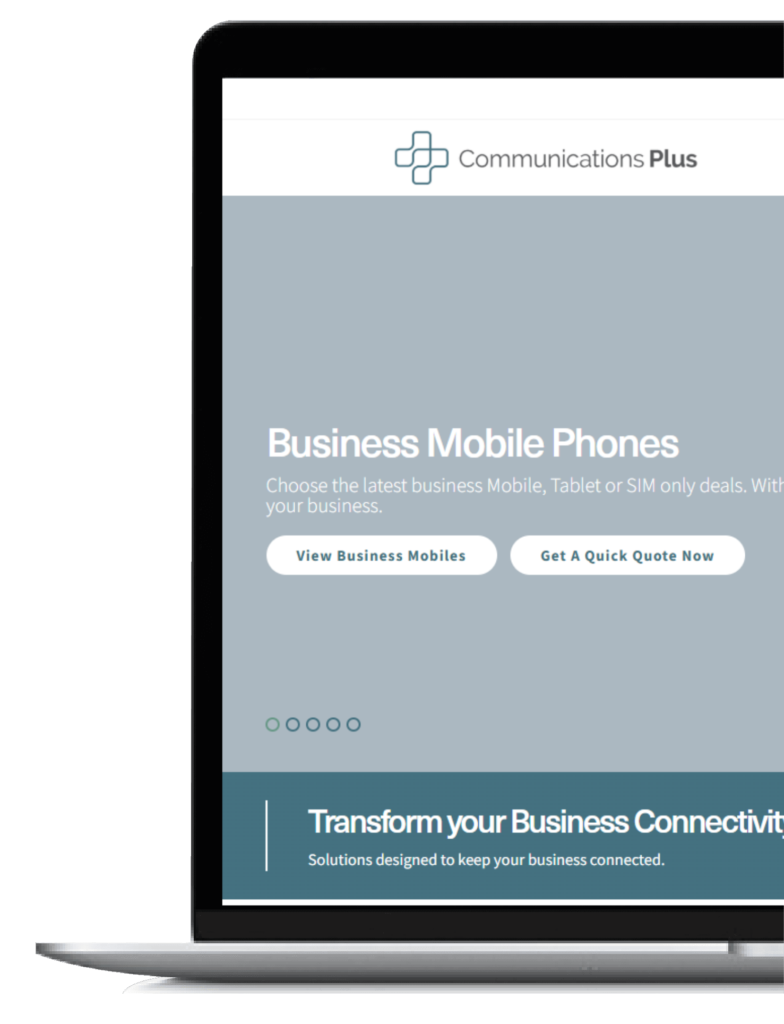Has communication ever been more important for businesses?
The “traditional” model of business has been completely derailed by the events of this year.
Not only that, but we’re all now questioning whether we’ll ever go completely back to the days of daily commutes and catching up at our desks.
Businesses which had never considered remote working have now not only been forced to adapt to it, but prepare themselves for the idea that this is how business will be done in the future.
Which has also raised the issue of business communications.
If we’re not all available in the office, connected to a landline that customers can reach us on, how do we make sure we’re available?
There’s a lot of ways to communicate today.
But business mobile phones remain one of the best choices to make sure your employees can keep in touch with each other, and customers when they’re working remotely either from home or from anywhere.
Here’s a few reasons why a business mobile phone is still an essential piece of your employees toolkit
Giving your employees the tools they need
If you’re expecting your employees to work remotely then they need the equipment to be able to do so.
Businesses with employees who work “in the field”, like those who regularly travel or conduct business at customers’ offices – like sales people – have long used a business mobile phone to make sure their employees are always contactable.
Whether or not your employees are working from an office, your customers are going to want to know they can still contact them quickly when they need to without just relying on emails.
An employee perk
Bring Your Own Device (BYOD) has been a policy in many businesses which have tried to adapt to changing ways of work before now.
Whether it’s been employees using their own laptops, or using their own phones – with their employer paying towards the monthly costs of any contracts.
And this is suitable for some employees.
But some employees are uncomfortable with their personal mobile number being given out to clients, or used on a company website.
It’s their phone, and they don’t want it used for business use.
This is a particular issue now, with more employees than ever trying to figure out the barriers between work and their homelife.
Providing your employees with a professional, business mobile phone is not only a sign that you believe in giving them the tools they need to do their jobs, but that you understand those who might want to keep their professional and personal lives more separate.
Video calls aren’t always the best option
Much has been made about the use of video conferencing this year.
And there’s no doubt that the use of video has rapidly increased for team or client meetings.
But these are meetings planned in advance, and are being used to replace “set piece” meetings that used to take place at offices.
But what about those ad hoc calls that would usually come into the office?
Your customer has a quick query, they can’t rely on you seeing an email and responding immediately, and setting up video conference links is too much admin.
In those situations, you need customers to be able to quickly call you to get information or ask a question.
Again, if your employees aren’t comfortable giving out their personal phone number, then a business mobile phone is the best option.
Save money
Cost and ROI is always a consideration when it comes to making an investment in your business.
You want to be sure that the benefits you’ll get out of the investment will be worth it.
Trying to adapt your business communications “piece meal”, trying to provide different solutions to different employees can end up being more expensive.
If you have multiple employees who need access to a mobile phone to do their jobs, you can negotiate better deals for your business if you’re purchasing larger numbers, which means you’ll save money.
This can be a much better idea than trying to cover the cost of some employees’ personal phones, while providing business phones to others.
What’s the best phone or deal for me?
There’s a lot to consider when it comes to investing in business mobile phones and the best thing you can do is take your time to figure out how they will fit into your business.
How do your employees currently communicate? What are the issues they’re facing? What problems are your customers having getting in touch with you?
You should also think about the longer term and how you see your business adapting in the next year or two.
Also, think about the kind of work your employees do and whether having a business mobile phone would make it easier for them to do that work.
Plus, what kind of deal do you need? Is it more minutes and texts for communications? Or is it that your employees need a deal with more data so they work remotely with a reliable network?
These are all things to consider before choosing the best business mobile phone and deal for your employees.
If you want more information about which deals might best suit your needs, then get in touch with us and we’ll be happy to discuss your options.
If you already use business mobile phones in your company and are looking at switching providers, use our cost savings calculator to see how much you could save by moving to Communications Plus and an O2 business phone.










